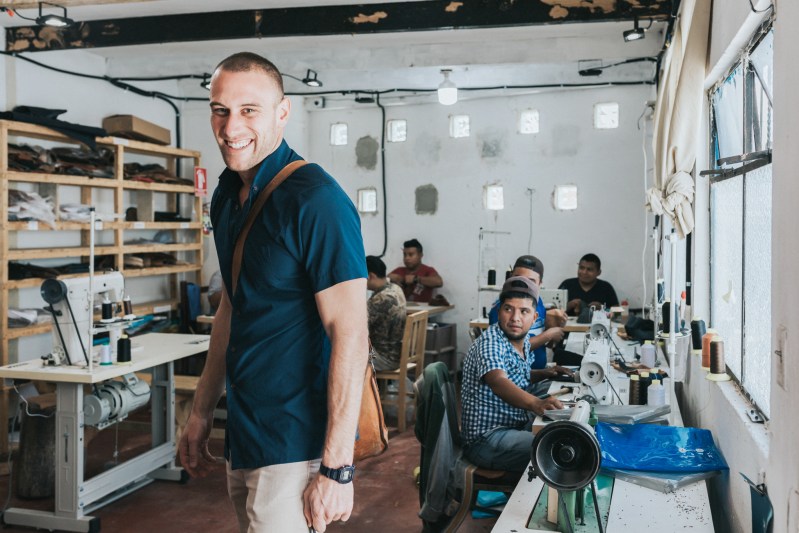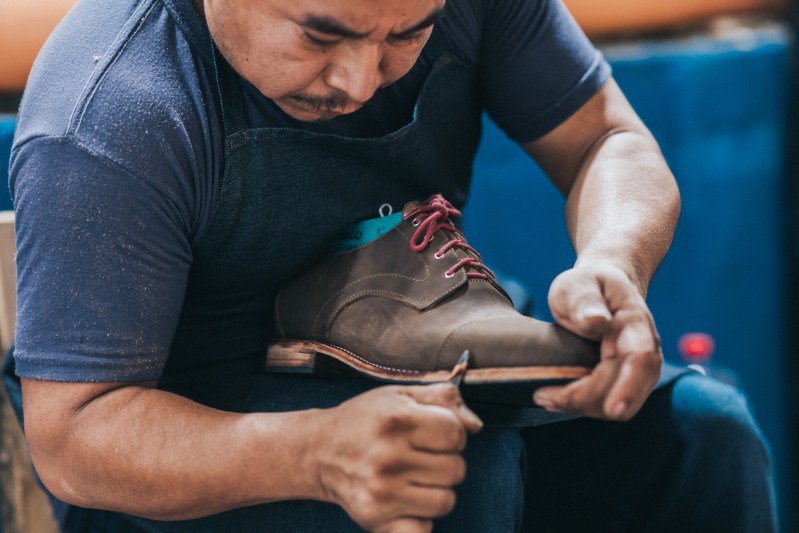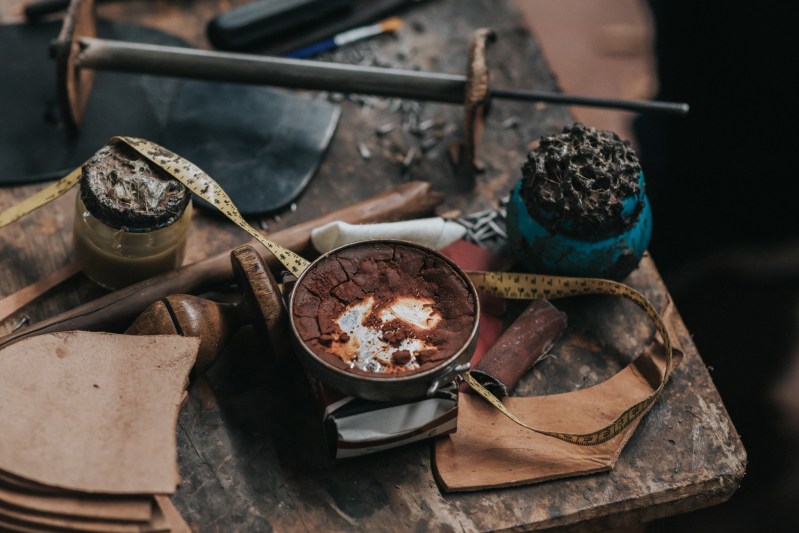Get Peter Sacco talking about Guatemala, and you’ll hear a history lesson, a master class in economics, and a political purview that leaves him wide-eyed and nearly yelling with excitement. It’s a passion that’s curious for a 28-year-old, 6-foot-3 gringo from Massachusetts who founded Adelante Shoe Co. in 2016 and is now CEO. The brand prides itself on not only providing handmade, made-to-order leather shoes and boots in just 10 days, but on doing so by putting its employees’ livelihoods — not profits — first.

It’s a strategy that might make other entrepreneurs cringe, but in the past three years, Sacco has breached more than $2 million in sales and has changed the lives of 40 craftsmen in the brand’s headquarters in Pastores, a small town just outside the tourist hub of Antigua.
Sacco’s passion for Latin America was born on a school trip where Sacco noticed the other side of his vacation destinations. “I went to Costa Rica, Ecuador, and then Guatemala and in each place I saw the same thing: poverty and social inequality,” says Sacco. “I witnessed this paradox of paradise and wondered ‘how could this exist?’”
After school, Sacco began splitting time between Boston and Pastores, a small town bustling with ornate “chicken busses” (converted American school busses with bright colors and designs) and boot shops on every corner. His goal was to start his business, but he soon discovered the proverbial village that would help made Adelante a reality, including his co-founders: COO Michael Pelzer, Brand Manager Julia Barry, and Production Manager Horacio Alvarez, a former craftsman.
In “Guate,” as they call it, there’s a community of young entrepreneurs hellbent on turning things around for the third-world country. Members of this close-knit group, who run Adelante’s shipping and photography, are largely ex-pats who were drawn to the village’s sense of community and connection with their craft. They all agree on one thing: The talented craftsmen in Guatemala deserve more than they’re getting for their trade.
Here’s his idea: “You can either buy a $300 pair of shoes of decent quality, but with nothing really special about them. Or you can get a comparable pair for $235 with higher quality, construction, and materials. They’ll be made just for you with custom sizing and arrive at your door in 10 days,” says Sacco. “Plus, you’re going to get to know the person behind the product and the impact we’re making on their life.”
I traveled to Guatemala to visit Adelante’s headquarters and sit down with one of its second-generation craftsmen, Adrian Gomez, as we witnessed the entire shoemaking process. He explained via translator that he’s been making shoes his whole life. There’s no doubt from all the nicks and scars on his weathered hands, the largest being a gash on his forearm.

“I got this (scar) making my first pair of shoes,” Gomez says. “I was about 9 years old and was cutting leather with the blade facing inward when my hand slipped (and I stabbed myself).” Then I noticed one of his fingers is split down the middle at the tip.
“Did that also happen when you were a child?” I asked. “No, that was a few months ago.” Suddenly the need to fairly compensate these craftsmen, who handle every step of the process and can make up to 10 pairs per week, became increasingly evident.
Gomez says he’s earning double what he made working for other brands and that the additional income has helped him with little things like buying his daughter her favorite drink on his way home from work to larger benefits that have been transformative.
“My 10-year-old son is mentally disabled,” says Gomez, the smile never leaving his face. “Before, I couldn’t afford to take him to the hospital, but now I can.” It’s a cold realization that the employee benefits for these workers, who live in rural areas, can have a life-or-death meaning.
Living among these workers has galvanized Sacco to create a more conscious way of doing business. “They teach you in business school to maximize profit, and I just don’t agree with that,” he says. “I don’t think that’s healthy for a democratic society. It’s maximizing profit for a handful of people, and everybody else is getting squeezed. So, we started by understanding what these guys need to live well with their families and then build our cost structure around that. So, our gross margin is 65 to 70%, which is totally healthy, but we’re also paying Adrian more than double what we would technically have to in order to keep him as an employee.”

As Adrian puts the finishing touches on my pair of brown leather cap-toe shoes, I shake Adrian’s hand and look around at the smiling faces in the Adelante workshop before I turn to Sacco and ask what he ultimately wants to come of this company.
“It’s about influence on the industry at large,” Sacco says. “I want Zara to go out of business. I want to build a more thoughtful, responsible company that does $100 million a year in revenue because people are responding to the story that we’re telling, the product that we’re selling, and the experience that we’re giving them: getting to know the people behind the shoes. And people will finally start voting with their wallets.”
“If you can make it easy for somebody to make a socially conscious decision, I really do believe that customers will look at us and say, ‘Adelante is so much cooler for it.’”


